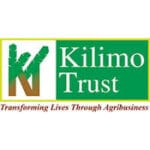AboutAgricultural Technology
The subject Agricultural Technology focuses on technology used in agriculture. The subject covers the knowledge of how processes, tools, equipment, structures and skills are utilized by farmers, to cultivate agricultural land and produce food and products, through various production processes, thus sustaining and maintaining quality of life and increasing economic, aesthetic and sound cultural values.
Specific Aims
The subject Agricultural Technology exposes learners to knowledge and skills relevant within the agricultural and farming environment.
in Agricultural Technology, learners will:
- Understand the social contribution of Agricultural Technology.
- identify and solve technological problems in an Agricultural environment using critical, innovative and creative thinking, in order to develop the creative potential of learners.
- Communicate effectively using verbal and written communication in Agricultural Technology.
- Organize and manage activities responsibly and effectively collect, analyse, organize, critically evaluate and present information.
- Use science and technology effectively and critically, showing responsibility and accountability towards the environment and the rights and health of others.
- Show an understanding of the relevant indigenous knowledge, values and attitudes which relate to Agricultural Technology.
Learners will be prepared for various career pathways and additional education and training opportunities by:
- Applying knowledge and skills of Agricultural Technology in various farming related contexts.
- Developing entrepreneurial skills.
- Exploring education and career opportunities, thus becoming lifelong learners, learning to be sensitive to the rights of others including those living with and affected by hiV and AiDS as well as Learners with Special Educational Needs (LSEN).
- Learning to manage and be sensitive to their own rights and responsibilities in terms of their role in the community.
scope
Agricultural Technology offers the learners the opportunity to apply the technological process to design and make practical projects, operate, repair and maintain equipment, design and construct structures in the agricultural environment.
The following generic concepts are embedded in Agricultural Technology:
- identifying and solving problems using the technological process and relevant scientific principles;
- safety rules and regulations applicable within the agricultural environment, according to the Occupational, Health and Safety (OHS) Act, 1993 (Act 85 of 1993), first aid and medical emergencies including HIV and AiDS awareness;
- basic operational knowledge and correct use of agricultural tools, equipment and machinery used in production and processing of food and fibre;
- effective communication techniques such as verbal, written and visual communication;
- effective use of computer technology, measuring and surveying equipment related to agriculture;
- construction, erecting and maintenance of agricultural buildings and structures;
- maintenance and repair of farm implements and machinery;
- energy principles and their application in agriculture;
- planning, construction and maintenance of animal handling facilities necessary for effective animal production;
- safe and effective use of agricultural equipment used in crop production, horticulture, orchards, vineyards, fodder crops and forestry;
- planning, designing and maintenance of macro and micro irrigation and hydroponics systems; and
- calibrations and calculations in the agricultural environment.
The following processes must be embedded in Agricultural Technology:
- Learn to solve problems in methodical, scientific and in creative ways in the agricultural environment;
- Learn by dealing directly with inclusivity, human rights, social and environmental issues in their theoretical and practical tasks;
- Use and engage with subject related knowledge in a purposeful way;
- Use a variety of life skills when working on projects in an authentic context (for example decision making,critical thinking, co-operation and needs identification); and
- develop more positive attitudes and perceptions towards career pathways.
Scope of Knowledge to be obtained
- Technology, society and the environment
- Technological process
- Specific knowledge and understanding
- Application of knowledge
Subject requirements
schools offering agricultural technology
Schools must have adequate human resources and access to appropriately equipped workshops where the practical demonstrations, lessons and practical work (PAT) can be done.
time allocation for agricultural technology
Four hours per week is allocated to Agricultural Technology. A two-hour continuous period must be allocated per week for practicals. Practical classes in the afternoons can be used to finish the PAT and various practical activities as decided by the school.
Overview of topics
| topic | Content | |
| safety | Grade 10 | Occupational Health and Safety (OHS) Act: introduction to the OhS Act: general workshop ruleselectrical safetyfire preventionbasic general safety regulations. |
| Grade 11 | OHS Act: general farm safety tips: chemicalsbasic general safety regulations | |
| Grade 12 | Safety hazards: three steps of a hazard control system OHS Act: farm safety regulations according to the OhS Act for: hazards associated with the farm environmenttractor safetynoise pollutionbasic general safety regulations. | |
| structural materials | Grade 10 | metals ferrous metals: mild steel)Timber (timber used on the farm; uses and properties.)Building (basic components of a concrete mixture)Fencing:types of wire, fences and netting andcomponents of a fence. |
| Grade 11 | metalsbuilding and construction. | |
| Grade 12 | metal alloys Synthetic materials Electric fences. | |
| energy | Grade 10 | Electrical energy: 12 Volt DC current basic principles of electrical energystandard symbols and units as applicable to DC circuitsbasic calculationsbasic components in a basic electrical ignition system of a motor vehiclebasic components of the electrical circuit of a motor vehicletrailer coupling plug for vehicles (male and female plugs). |
| Grade 11 | Electrical energy: 220 and 380 Volts AC and DC current: heating and magnetismcomponents in the household distribution boardalternating and direct current systemselectrical conductors/cablingelectric motors and generators;multi meterthree point pluggeyser. | |
| Grade 12 | Alternative energy: wind energysolar energygeothermal energybio-energy. | |
| topic | Content | |
| Construction processes | Grade 10 | Welding methods and their application: arc weldingsoft solderinghard soldering (brazing). |
| Grade 11 | Skills used in the handling of advanced tools Welding: arc weldingoxy-acetylene weldingwelding joints and symbols. metal work | |
| Grade 12 | Advanced welding techniques: CO2-welding;advanced welding joints and their applications;oxy acetylene cuttingplasma cutting. | |
| tools and equipment | Grade 10 | basic hand tools used in workshop;animal drawn implementsbasic primary cultivation implementsengines. |
| Grade 11 | safety related to the use of toolsadvanced electrical toolssafety equipmentsecondary crop cultivating implements. | |
| Grade 12 | harvesting or processing machines/equipment Tractor systems: tractor hydraulic systemspoint coupling of a tractormass displacement and pulling force of a tractordrive systemscomponents of the drive system of a vehicle;pneumatic and hydraulic tools: identification and functionseconomics associated with tractors, equipment and tools. | |
| irrigation and water supply | Grade 10 | basic water pumping methods;micro irrigation systemswater supply to animals. |
| Grade 11 | Water pumps: water pipeswater sources andwater storage.. | |
| Grade 12 | Overhead irrigation systems (macro irrigation systems):irrigation schedulingwater measuring techniques and devices used in conjunction with effective; water scheduling;waste water removaldrainage systems used to get rid of access water around farm buildings andwater purification/softening. | |
| topic | Content | |
| Communication | Grade 10 | information sources |
| Grade 11 | Computer technology in agricultureCommunication technology in agricultureAgricultural careers | |
| Grade 12 | Computer control programsirrigation control systemsComputer controlling and monitoring engines, implements and equipmentComputer technology information:Global Positioning Systems (GPS)Computerised information Systems (CiS)Variable Rate Technology (VRT);Remote sensing.Different types of communication systemsSources for knowledge, skills and informationExhibitions, seminars, agricultural unions, discussion groups | |
| drawings | Grade 10 | Basic freehand sketches and drawings :lines (hidden, dash and dotted)labelling and numbering andintroduction to basic scale drawings. |
| Grade 11 | Drawings used in agricultureBasic freehand sketches of First Angle Orthographic drawingsBasic freehand sketches of Third Angle Orthographic drawings | |
| Grade 12 | Produce freehand design drawings of structures, buildings or implementsintroduce and familiarize learners with basic software programs for designing buildings, structures or machine parts | |
| measurements, calculations and calibrations | Grade 10 | Different measurements and related unitsBasic expenditure calculations in projectsCalibration of hand tools and equipment used |
| Grade 11 | measurement and calibration as applicable in tools, implements and equipmentCalculations of fabrication and maintenance expenditureProduction, running and machinery costsScales and weighing equipment. | |
| Grade 12 | Problem solving in data collectedUse data, collected from measurements and cost calculations in purpose made fabrications.Effective use of tools, equipment and implements due to correct measurements, calibrations and adjustments. | |











